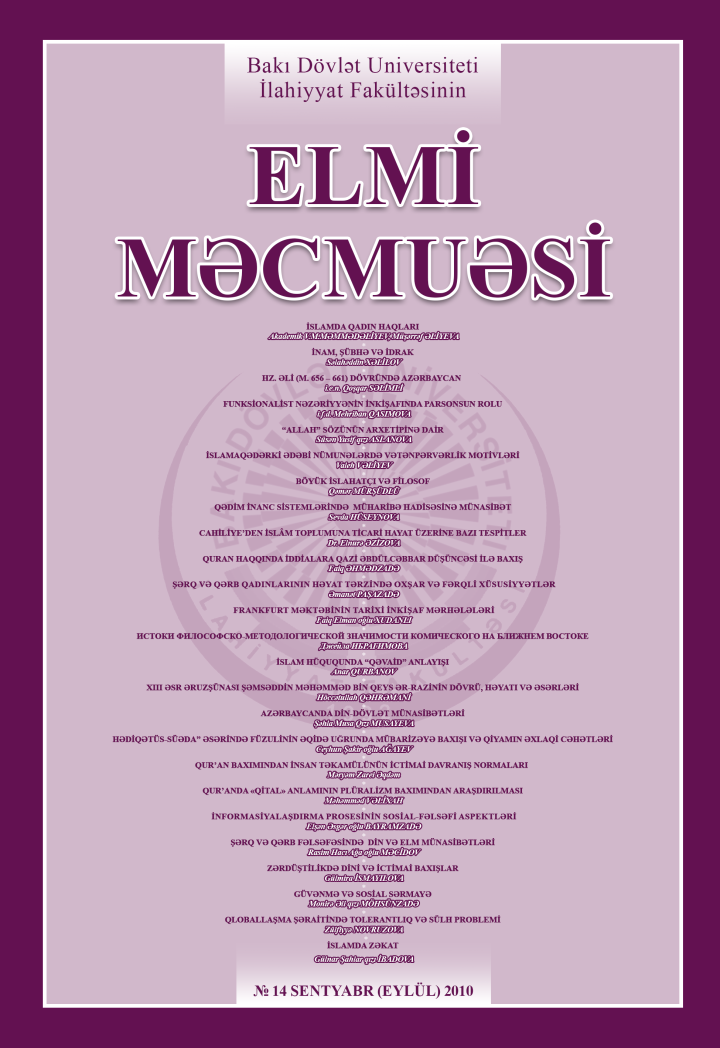Əgər insan öz şəxsi həyatını və onu əhatə edən lokal mühiti sonsuzluğun bir parçası kimi təsəvvür edirsə, yaxud, başqa sözlə desək, konkret həyat hadisələrinə əbədiyyət və sonsuzluq kontekstində baxırsa, burada hissi idrak və məntiqi təfəkkür acizdir. Çünki bu halda insan normal elmi düşüncənin hüdudlarından kənara çıxır.
The article discusses the importance and place of faith in the structure of the spiritual world of man. By dividing belief into multiple dimensions and degrees, the author emphasizes the necessity to distinguish between the man's faith in himself and in the spiritual embodiment of the external world. The human being compares his own cognitive and creative power with the creative potential of nature. It is noted that when the human being acts as a subject, then we are talking here about his faith in his own cognitive abilities as well as in his evaluation capacity and finally in the motives and means of his practical activity. The necessity to distinguish religious faith and the faith in the Absolute from other types of faith is justified here as well. The author considers that the most prevalent belief is the belief in rationality and logic, though it is a hidden type of belief. Accordingly, the natural cult of logic leads to another type of faith.
В статье рассматривается значение и место веры в структуре духовного мира человека. Выделяя множество аспектов и степеней веры, автор подчеркивает необходимость различения веры человека в себя и веру человека в духовное олицетворение внешнего мира. Человек сопоставляет собственную познавательную и творческую силу творческому потенциалу природы. Отмечается, что, когда сам человек выступает в качестве субъекта, то речь при этом идет о вере его в собственные познавательные способности, в собственный вкус, в мотивы и средства своей практической деятельности. Обосновывается мысль о необходимости отличать религиозную веру и веру в Абсолют от других форм веры. По мнению автора, самой распространенной, хотя и скрытой формой веры, является вера в рациональность и логику. Следовательно, стихийный культ логики приводит к еще одному виду веры.
